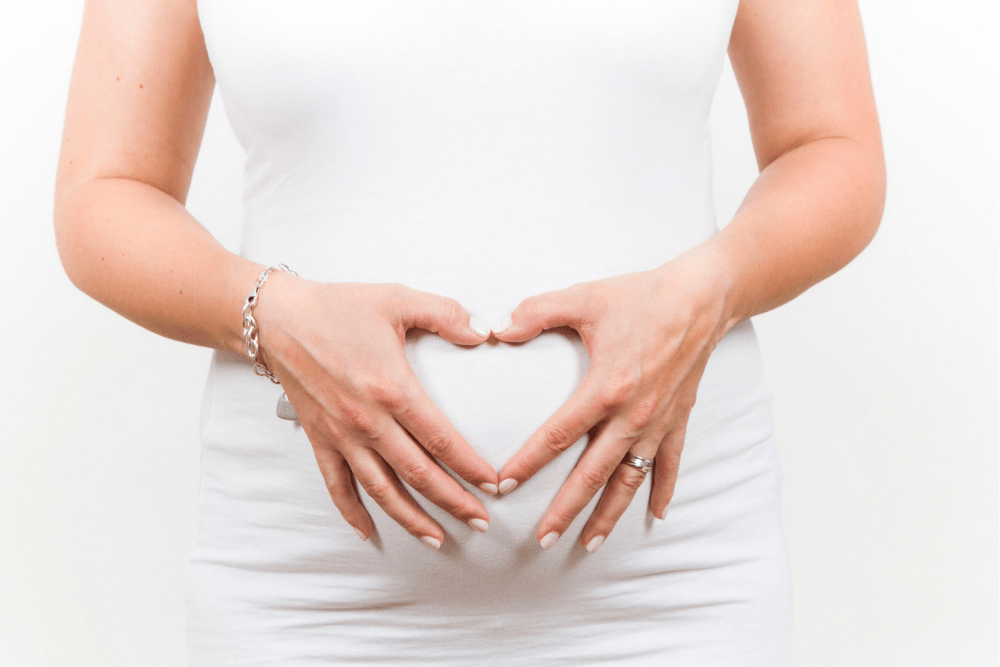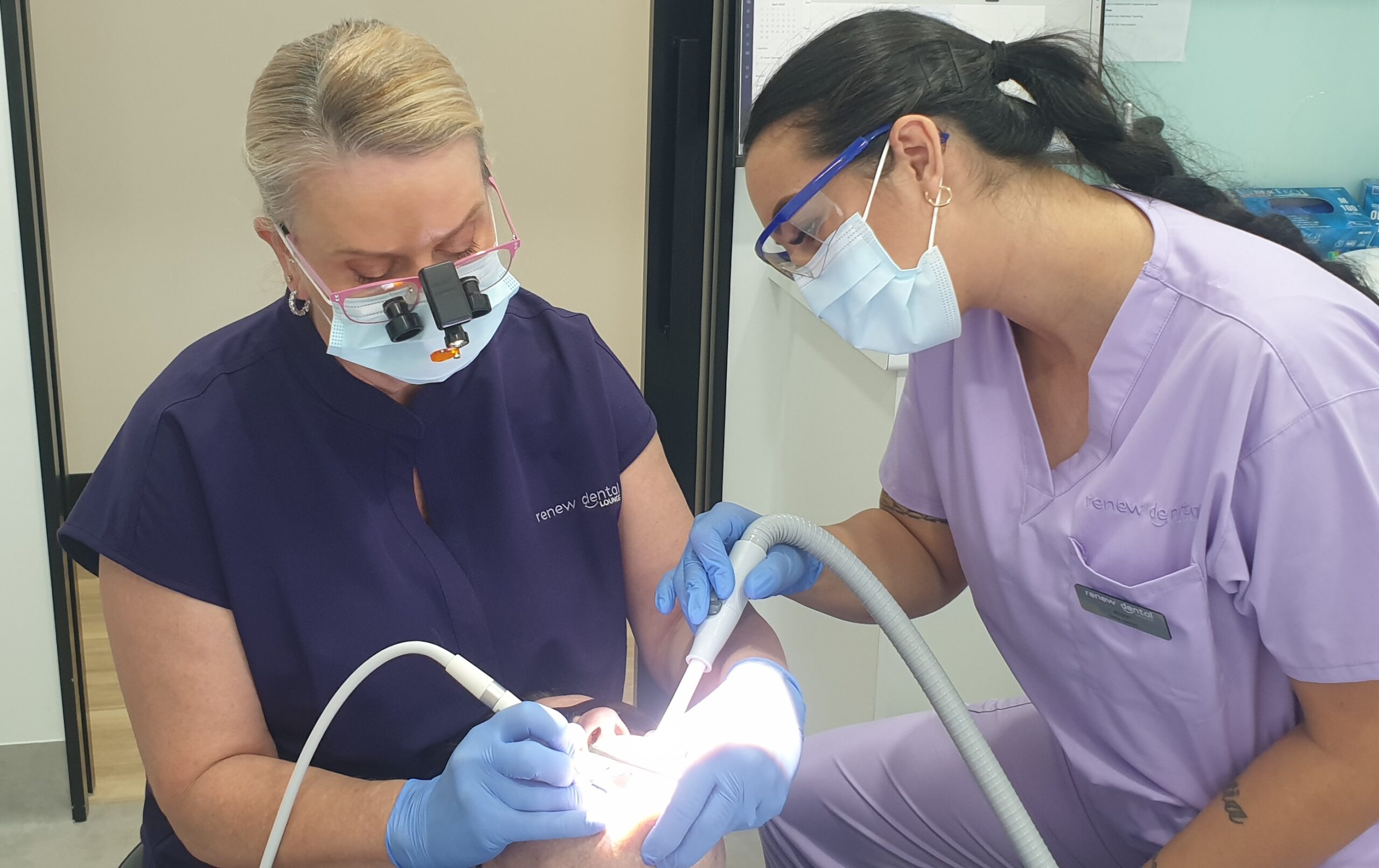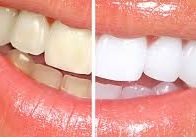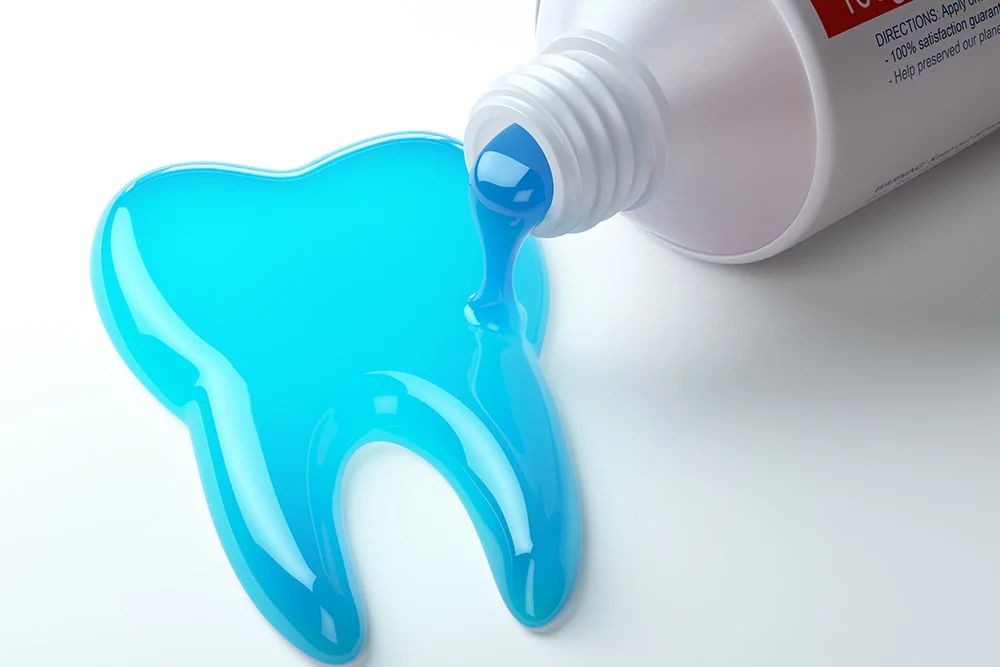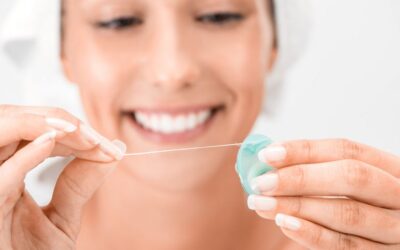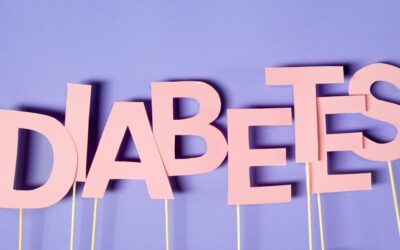Myths
“You lose a tooth for every baby!”
Myth
Pregnancy itself doesn’t cause tooth loss. However, hormonal changes and increased susceptibility to gum disease during pregnancy may contribute to dental issues. Proper oral hygiene and regular dental check-ups can prevent these problems. Having a dental check-up before becoming pregnant and keeping good oral hygiene and a low sugar diet helps prevent dental problems, not just during your pregnancy.
“It’s not safe to go to the dentist during pregnancy!”
Myth
It is safe and essential for pregnant women to receive regular dental check-ups. Delaying dental care can lead to complications. Inform the team at Renew Dental Lounge about your pregnancy, and we can tailor treatments accordingly. Routine dental cleanings and necessary treatments are generally safe during pregnancy. Avoiding dental care can lead to more significant issues. Our team will provide safe and effective treatments, especially if we are aware of the pregnancy.
“No treatment is safe during pregnancy!”
Myth
Untreated tooth decay and gum disease can lead to infections. Infections in the mouth can be severe. They can be a risk to you and your unborn baby.
“Pregnant women should avoid X-rays at all costs!”
Myth
Dental x-rays are often needed to help us provide you with safe, high-quality care. These x-rays can be taken during pregnancy. This is the advice from the Australian Radiation Protection and Nuclear Safety Agency. For some x-rays, you may be asked to wear a lead apron while the x-ray is taken. This apron is placed over the chest and stomach.
“I can’t have a local anaesthetic during pregnancy!”
Myth
Local anaesthetic injections are used to make the teeth and gums numb for dental treatment. They are safe to have during pregnancy and breastfeeding. Dental treatment should not be avoided for this reason.
“Calcium supplements are unnecessary during pregnancy because the baby takes what it needs from the mother’s teeth!”
Myth
The baby’s development is not dependent on taking calcium from the mother’s teeth. However, it’s crucial for pregnant women to maintain an adequate calcium intake for both their and the baby’s overall health. If there’s a deficiency, the body may draw calcium from the mother’s bones, not specifically from the teeth.
“Gum problems during pregnancy are temporary and don’t require attention!”
Myth
Pregnancy gingivitis is common, but it should not be ignored. Without proper care, it can lead to more severe gum disease. Regular dental check-ups, good oral hygiene, and professional cleanings can address and prevent these issues.
Severe gum disease, called periodontitis, can also impact your pregnancy. Periodontitis during pregnancy is associated with pre-term births, low birth weight babies and pre-eclampsia.
“Morning sickness doesn’t affect teeth.”
Myth
Vomiting during morning sickness, or at anytime of the day, exposes teeth to stomach acid, which can erode enamel. It’s crucial to rinse the mouth with water or use a fluoride mouthwash to protect teeth from acid damage.
Pregnancy does not cause poor mouth health and damage to teeth. But changes in lifestyle, habits and body processes may increase your risk of dental problems during pregnancy.

Food cravings? Try to avoid sugary treats
So now for the facts!
The best time to see a dentist?
You can see the dentist at any stage of your pregnancy. Some women find it is most comfortable during the second trimester. This is the third, fourth and fifth months of pregnancy. Morning sickness, nausea and mouth sensitivity are more common in the first trimester. But they have usually settled by the second trimester. During the third trimester, the increased size of the baby may make laying back in a dental chair uncomfortable.
Food cravings
Craving sweeter foods and drinks is common during pregnancy. But having too many sugary foods and drinks may increase your risk of developing tooth decay. Try to snack on low sugar foods such as fresh fruit, cheese, crackers, or plain yoghurt. When you eat sugary snacks or drinks, rinse your mouth with water after. Rinsing your mouth with tap water is best because it contains fluoride which protects teeth. Snacking or grazing frequently during the day can increase your risk of tooth decay. Try to have your sweet treat with main meals instead of between these meals.
Gum disease
Healthy gums do not bleed. Gingivitis is a common type of gum disease. It is the body’s reaction to the bacteria that builds up on the teeth. The gums become inflamed and may be red, swollen and bleed easily. During pregnancy, changes in hormones can make the gums more sensitive to the bacteria in the mouth. This can make it easier for the gums to become more inflamed when the bacteria are not brushed away. Brush twice per day and clean between your teeth (with floss or other tools) every day helps to remove the bacteria from between the teeth and around the gums. If you are caring for your teeth and gums well but your gums continue to bleed, check with your dentist.
Vomiting and reflux
Vomiting and reflux are common during pregnancy. These actions can cause stomach acids to come up into the mouth. These acids are very strong and can damage the teeth. If the stomach acid covers the teeth too often, it can cause the surface of the teeth to wear away. This is called dental erosion or tooth erosion.
Below are some tips to protect your teeth if you are experiencing vomiting or reflux.
Do not brush your teeth straight after vomiting or reflux.
Wait one hour before brushing your teeth.
While waiting to brush, have a drink of water, rub some toothpaste on your teeth using your finger or rinse your mouth with an alcohol-free mouthwash. It is safe to leave the toothpaste on the teeth as this will help to protect them for longer.
If you are out and about, chewing sugar-free gum is an option. This can help to increase your saliva production to help rinse the acids from the mouth.
Gagging while brushing your teeth
The back of your mouth may be sensitive to touch. This may make you gag when brushing your teeth. This can make it more difficult to clean your teeth, but it is important that you do not stop cleaning them.
Here are some tips if you are having trouble with gagging.
Try using a toothbrush with a smaller head. You may even want to use a small children’s toothbrush.
Focus on brushing your teeth. Close your eyes, breathe slowly through your nose, and use a very gentle, tooth brushing technique.
If you set your gag reflex off, stop, and wait a little before finishing brushing.
Wait to brush your teeth later in the morning if your morning sickness settles or subsides.
Soft tissue changes
It is not uncommon to get lumps and bumps in your mouth during pregnancy. It is important to speak to your dentist if you notice any changes in your mouth.
One example is a pyogenic granuloma. This is also called a pregnancy tumour. It is a red, lumpy growth that can develop in the mouth during pregnancy.
Can I whiten my teeth while I am pregnant?
Teeth whitening treatment is not recommended for women who are pregnant or breastfeeding. There isn’t any evidence that teeth whitening is dangerous for pregnant women, but there also isn’t any evidence that it is safe. Therefore, it is best to avoid it.
A general dental check-up is recommended for women who are considering becoming pregnant. However, dental treatment is still safe during pregnancy. Pregnancy can impact oral health due to changes in hormones and eating habits as well as morning sickness and reflux can increase the risk of tooth erosion.
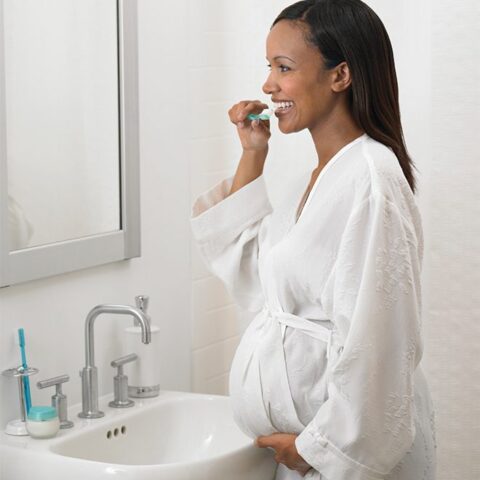
tooth brushing pregnant
Dr Sharon is the mother of three beautiful children so understands the difficulties women face during their pregnancy.
Book an appointment with Dr Sharon, where you will be treated with empathy & gentle care.
Related articles

